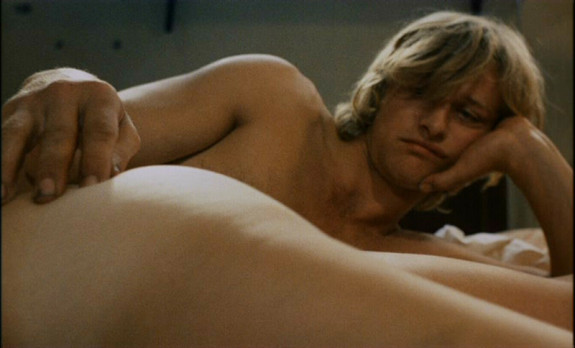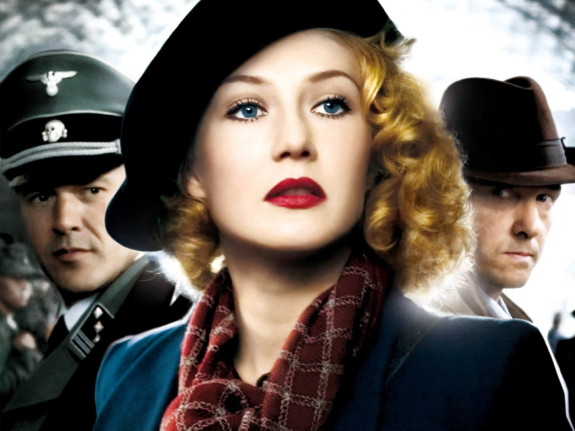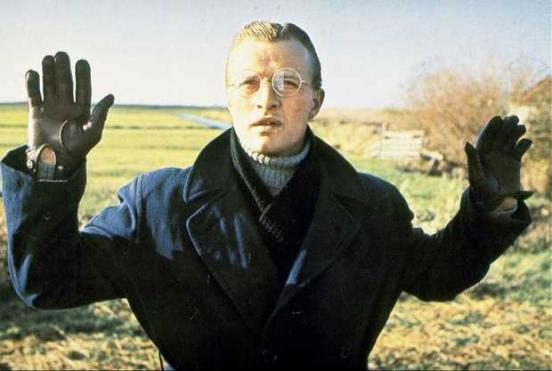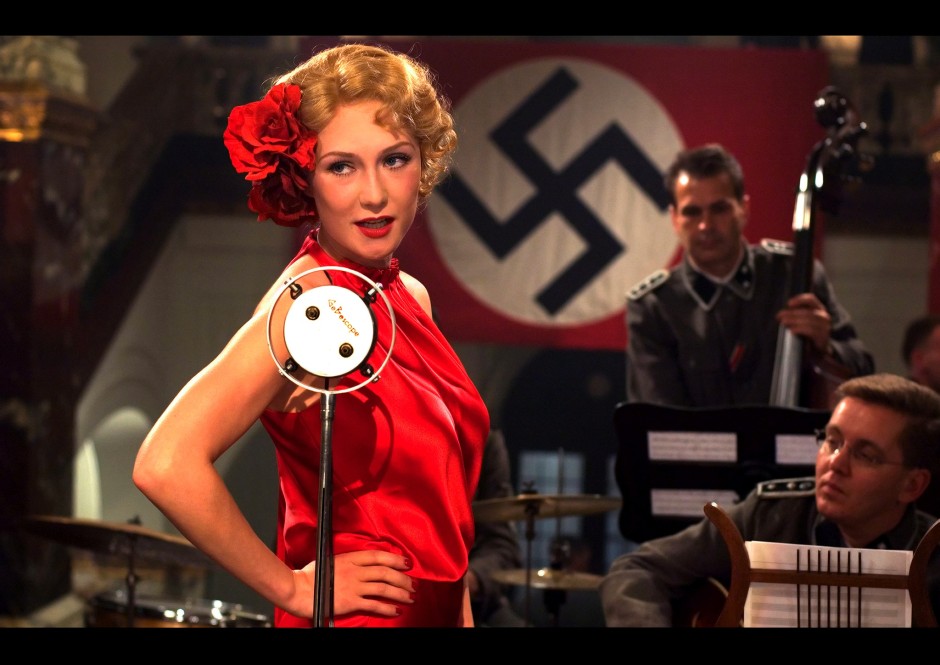North American filmgoers are probably familiar with Paul Verhoeven’s Hollywood films — science fiction blockbusters like Total Recall, RoboCop and Starship Troopers, the erotic thriller Basic Instinct and the bust of all busts, Showgirls, which almost ruined his career.
It would be fair to say they know much less about his Dutch-language films, from Turkish Delight, one of his first, to Black Book, which was screened at the Toronto International Film Festival in 2006.
From now until April 4, TIFF will present Flesh + Blood: The Films of Paul Verhoeven, a retrospective of all his movies, which have been nominated for nine Academy Awards in the past 40 years.

Verhoeven’s films, whether made in Holland or the United States, tend to be action-packed, intense, playful and, in places, salaciousness. In other words, he aims to please.
Turkish Delight, released in 1973, is apparently the most commercially successful Dutch film of all time. It’s outrageous, shocking, funny and unconventional, a breath of fresh air, if you like.
A couple emerges from a car, only to be murdered by an intruder emerging from the dark of night. The camera cuts back to a naked man lying in bed in a filthy room. He sticks a photograph of a nude woman on the wall and proceeds to masturbate, his moans audible. To a mainstream audience four decades ago, this must have provoked gasps of surprise, if not disapproval.
The man who pleasures himself is Erik Vonk (Rutger Hauer, an actor who would appear in a succession of Verhoeven pictures), a young bohemian sculptor with long locks of blonde hair falling down his neck. A sex addict, he seduces a procession of women, including an Asian he picks up at a telephone booth and the mother of an infant child whose baby carriage she gently rocks as she climaxes. All these scenes have the feel of a soft-core film.

Turkish Delight flashes back two years as Vonk wangles a lift from Olga Staples (Monique van de Ven), a pretty thing from a conservative family. No sooner has she opened the car door than he begins behaving outrageously. Olga, of course, is receptive to his lewd moves. After having had sex with her on the reclining right front seat, his penis gets stuck in his pants zipper, setting the stage for yet another outlandish scene.
They part ways, only to meet again at an amusement park. They go back to his house, reigniting their sexual relationship. The camera lingers on Van de Ven, who has a beautiful lithe body.
In a bacchanal of love and lust, they marry, frolick on a beach during their honeymoon, return to her parents’ house before leaving in a huff and continually indulge in sex. They behave much like 1960s flower children.
Verhoeven never stops tilting at windmills as Vonk and Olga brazenly defy social conventions. Olga flashes her breasts at a ceremony attended by Holland’s queen, and at a restaurant, Vonk causes a commotion when he finds a cow’s eye in a dish.
Verhoeven takes delight in titilating viewers and satirizing Dutch society. The film, though usually fun to watch and rarely boring, is both predictable and unpredictable, a time capsule from the 1970s. The principal performers appear to derive immense satisfaction from their respective roles.
Black Book, which takes place in Nazi-occupied Holland, is the polar opposite of Turkish Delight.
It opens in 1956 as a tour bus approaches a kibbutz near the Dead Sea in Israel. A Dutch tourist recognizes a voice in a classroom. It belongs to Rachel Rosenthal, whom she met under very different circumstances in wartime Holland. As Rachel mediates on the shores of the Dead Sea, memories of the past flood in.
It’s 1944 and Rachel (Carice van Houten), a Dutch Jew, is sitting with a farmer and his family around a supper table. At his command, she recites a biblical verse, prompting him to say, “If the Jews had listened to Jesus, they wouldn’t be in the mess they’re in now.”

Like her parents, Rachel, a former cabaret singer, has gone into hiding. When an American plane accidentally bombs the farm house in which she has found shelter, a member of the Dutch resistance helps Rachel. By arrangement, she meets her parents and brother at a dock, where they board a boat bound for Belgium. The vessel is intercepted by a German patrol boat and all the passengers except Rachel are killed, their valuables stolen by the Germans.
Joining the resistance movement as a courier, she changes her name to Ellis de Vries. Aboard a train on her first mission, she meets Muntze (Sebastian Koch), a German officer who’s clearly infatuated with her. She’s ordered to get to know Muntze in the flesh so she can ferret out military secrets from him.
Muntze surmises she’s Jewish and she admits he’s right. He doesn’t act on this information, leading her to believe he must be a decent person. On orders, she plants a miniature microphone in his desk. By then, she has fallen in love with him, casting suspicions on herself.
Black Book skillfully recreates the oppressive nature of the German occupation and the courageous but not always successful efforts of the Dutch underground to subvert it. It’s shot through with bloody shoot-outs, violence and betrayals and impregnated with sex, in usual Verhoeven fashion.
He portrays Dutch resisters in heroic hues, but does not overlook their faults. When they suspect that Rachel has betrayed them to the Germans, they resort to antisemitic tropes. “What a sneaky Jewish trick,” says a woman. “You can’t trust them,” pipes in a man.
Being somewhat too long, the film loses some of its momentum toward the end. Nevertheless, Black Book is generally an engaging film.
Solider of Orange, released in 1977, is a variation on the theme of Black Book. Spanning a seven-year period from 1938 until 1945, it, too, deals with the German occupation.
It opens on a high note as the beloved queen of Holland, a stodgy and formal figure, is welcomed back from exile in Britain by her ecstatic subjects. “The House of Orange is home again,” blares an announcer.
In a flashback, the camera pans on a raucous fraternity meeting at the University of Leiden, where rowdy senior students humiliate freshmen in an infantile show of bravado. Gus (Jeroen Krabbe), the head of the fraternity, takes special pleasure in belittling and bloodying Erik (Rutger Hauer). Stricken by guilt, Gus later apologizes, and the pair bond.

In this film, 165 minutes in length, Verhoeven traces their fortunes and that of their comrades after the outbreak of World War II. “We’ll be neutral, as usual,” one student says confidently. “A spot of war would be quite exciting,” says another student.
The German invasion of Holland is hardly a picnic. The Dutch armed forces are woefully unprepared and surrender after a few days. And soon afterward, Dutch Jews suffer the consequences. A newspaper headline reports that Jews can no longer attend university. And in a scene that speaks volumes about the temper of the times, a Jewish pedlar is assaulted by two antisemitic policemen, who, in turn, are set upon by a former boxing champion who happens to be Jewish.
While Verhoeven lays the emphasis on Dutch resistance to the Nazis, he does not let Dutch collaborators off the hook. As Dutch volunteers in the German army march off to war, they are showered with flowers by onlookers.
Erik and Gus, both members of the anti-Nazi underground, reach Britain for military training. But even in Britain, traitors appear to lurk. When Gus returns to Holland, the country has already changed beyond recognition. Jewish children he passes on the street wear the dreaded yellow Nazi star, and walls are daubed with anti-Jewish graffiti.
Through Erik, Gus and others in their social circle, Verhoeven draws a vivid portrait of Holland under the Nazi boot. Hauer and Krabbe, in particular, deliver credible performances in a film that deftly recreates a dark era in Holland’s history.
